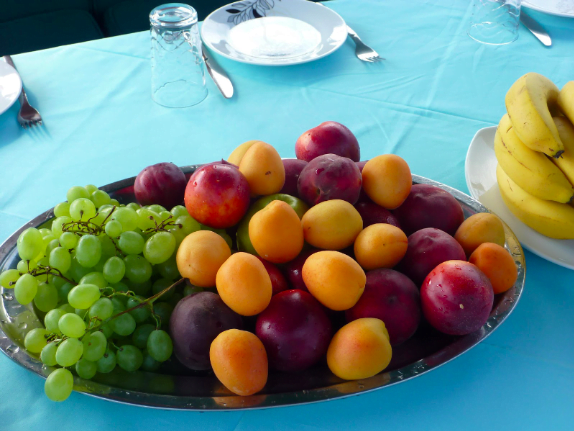
Happy National Mediterranean Diet Month everyone! I am feeling more celebratory of this beautiful style of eating this year more than ever. In the throes of low carbohydrate, ketogenic and food elimination diets that seem to be having their moment, the simplicity and balance that the Mediterranean style of eating offers is so appealing.
There are numerous studies linking the Mediterranean diet to healthy body weight, as well as it’s ability to decrease risks of heart disease, type 2 diabetes and certain types of cancers. However, the Mediterranean diet is not a “diet” that limits or demonizes any foods. It is a style of eating with an emphasis of plant-based foods such as fruits, vegetables, whole grains and legumes. Seafood and healthy fats from foods like nuts, seeds, avocados and olive oil are also important contributors. Moderate amounts of dairy foods, such as Greek yogurt and feta cheese are encouraged. Red meat and some sweets are included, but in much smaller amounts than in a typical western diet.
Along with the eating guidelines, there are also certain Mediterranean lifestyle habits that may contribute the diet’s healthful effects. Cooking more meals at home and enjoying these meals with family and friends may be good for your health. If you include alcohol in your diet, drinking a glass of wine with dinner provides important antioxidants that may help the aging process (moderate consumption is one 5-ounce glass of wine per day for women and up to two 5-ounce glasses of wine per day for men). The Mediterranean lifestyle also encourages being active; find ways to move more and sit less.
How do you implement this? I can share with you that I had amazing trips to both Greece and Croatia, where the Mediterranean lifestyle is the norm. I went on an early morning run each day and was always impressed by the number of people out for their daily morning walks: young, old and everywhere in between. I would come back from running to simple breakfasts of plain Greek yogurt with a touch of local honey, fresh fruit and whole grain toast. In Greece, my lunch of a Greek salad with cucumber, tomato, onion, peppers, olives and feta in a lemon-olive oil dressing was so delicious that it never got old, even after 10 days! Warm pita bread and hummus was a great side dish or appetizer. My favorite dinners included local, fresh fish, fresh vegetables and a whole grain such as polenta, served with a glass of local wine and the company of my family. With all of the amazing main meals, I rarely wanted dessert and rarely needed a snack. All of these meals were delicious, affordable and can easily be implemented at home. You don’t have to visit the Mediterranean to live the lifestyle. Enjoy!
Meet Angie
Registered Dietitian Nutritionist
Angie Dye is a Registered Dietitian Nutritionist (RDN) and a Certified Specialist in Sports Dietetics (CSSD). She is also a Certified Intuitive Eating Counselor.
Angie holds a Master’s Degree in Nutrition Science from Indiana University in Bloomington, Indiana. Prior to starting her private practice, Angie worked as a Clinical Dietitian at the University of Chicago Hospitals. She also served as adjunct faculty at Loyola University in Chicago.
If you enjoyed this post please share The Love!
Subscribe for More Great Articles!
Subscribe via email to be notified of new articles, recipes and helpful tips.


